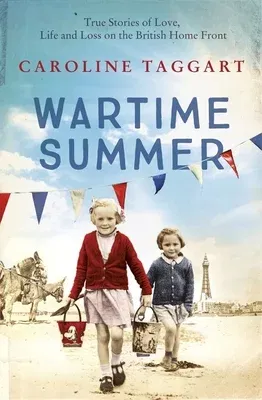Caroline Taggart
(Author)Wartime Summer: True Stories of Love, Life and Loss on the British Home FrontPaperback, 30 April 2020

Qty
1
Turbo
Ships in 2 - 3 days
Only 2 left
Free Delivery
Cash on Delivery
15 Days
Free Returns
Secure Checkout

Print Length
336 pages
Language
English
Publisher
John Blake
Date Published
30 Apr 2020
ISBN-10
1789461243
ISBN-13
9781789461244
Description
Product Details
Author:
Book Format:
Paperback
Country of Origin:
US
Date Published:
30 April 2020
Genre:
1940's
ISBN-10:
1789461243
ISBN-13:
9781789461244
Language:
English
Pages:
336
Publisher: